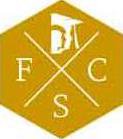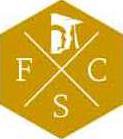FORSYTH COUNTY — Next year’s dress code in public schools throughout Forsyth County will be different in one often-discussed area — the fingertip rule.
In the 2016-17 code of conduct and discipline procedures for kindergarten-12thgrades, the appropriate length of a student’s outfit will no longer be defined as “beyond fingertip length with arms extended downward by the sides of the body.”
Starting at the beginning of the 2016-17 school year, skirts, dresses or shorts must be an “acceptable length in order to avoid any disruption of a normal school day.”
The final decision of appropriate dress will be made by each school’s principal or his or her designee.
Also taken out was the ability for a student’s privilege to wear shorts to be revoked after a second violation.
The 5-0 vote by the school board came Thursday night after much talk between parents, school and district administrators over what has been deemed unrealistic dress code requirements put in place by the fingertip rule and today’s styles.
District 2 board member Kristin Morrissey said it is getting more difficult to find clothing that is appropriate for her daughters to wear to school during warmer months and that she has heard from many parents who are experiencing the same hardships.
“The rule is hard with styles today, so the time is right to change it and let principals exercise more judgement,” said Superintendent Jeff Bearden.
According to Bearden, central office staff plans to meet with principals about enforcement, which was another cause of concern for the fingertip rule.
Dress codes appeared to differ from campus to campus because staff in some would realize the rule was unrealistic and not enforce it, while others would adhere to the rule, however strict.
“This is similar to what they have in Fulton County,” Bearden said. “I think it will be better for our students and for us for enforcement.”

